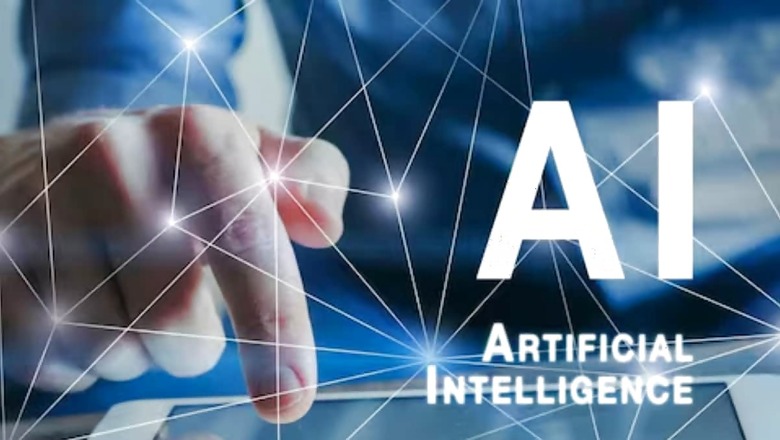
views
In the late 1990s, the internet was the next big thing. Companies rushed to be part of the digital revolution, and investors followed suit, pouring money into anything remotely connected to the World Wide Web. This led to an unprecedented surge in stock prices of IT companies. This also led to an unprecedented rise in valuation for many tech firms.
However, by early 2000, the stock market worldwide faced a harsh reality— the dotcom bubble burst. The hype faded, many companies went out of business, the economy took a hit and countless jobs were lost.
Fast forward to today, and a similar phenomenon is being gradually noticed with the artificial intelligence (AI) boom. The stock markets have been riding a wave of optimism about AI, leading to a dramatic rise in the valuation of companies, primarily those heavily invested in the emerging technology.
Nvidia, for instance, has seen its stock price rising nearly 3x since last summer. Other tech giants like Google and Microsoft have also enjoyed significant rise in their stock values, according to a Forbes report.
The recent stock market trends have alarmed many experts— just as in the dot-com era, there are concerns that this surge in stock prices may not be sustainable. Analysts often warn that when stock prices climb rapidly without a clear connection to tangible value, a correction is likely on the horizon. The question is whether the AI boom is headed for a similar collapse as the dotcom bubble.
The current AI boom: Reality or Hype?
The AI boom has been driven by enormous expectations. This optimism has fueled the rise of US tech giants like Nvidia, Google, Microsoft, and others, whose stock prices have soared on the promise of AI. Recently, there have been signs that the reality might not live up to the hype.
The earnings reports from major players like Google and Tesla have fallen short of expectations leading to dips in their share prices, according to the Forbes report. Meanwhile, public sentiment towards AI is becoming increasingly sceptical, with many market observers raising concerns about the technology’s impact on jobs, privacy and society at large.
Further, businesses are finding it challenging to turn AI into a profitable venture, adding to the uncertainty.
Is the AI bubble about to burst?
So, does all this mean that the AI revolution is on the verge of collapse, much like the dotcom bubble that happened two decades ago? It’s a valid concern, but there is no clear answer.
According to the Forbes report, even if the AI boom goes the dotcom way in the early 2000s, it may not be as catastrophic as the dot-com collapse. The companies leading the AI charge today – Microsoft, Nvidia, Alphabet, and Meta – are vastly different from the fledgling internet startups of the 1990s. These are well established, profitable businesses with diverse revenue streams that don’t rely solely on AI. Even if their AI initiatives fall short, they have other verticals to lean on.
Moreover, these companies have built up enormous user bases and possess vast amounts of proprietary data, which gives them a competitive edge and makes it harder for newcomers to disrupt the market.
Despite a flourishing IT industry, it’s important to remember that even these tech giants aren’t immune to challenges. Legal and regulatory pressures, like the ongoing Google antitrust case or Nvidia’s antitrust probes, could significantly impact their AI ambitions, the report added.



















Comments
0 comment